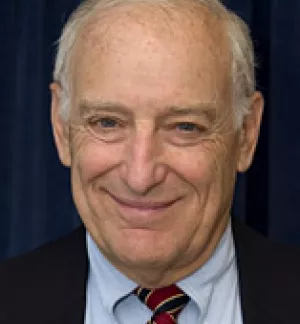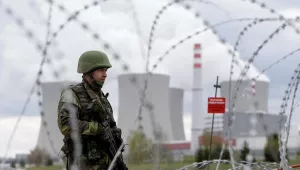WASHINGTON needs to learn to talk, listen, and engage more and condemn less.
It understood those wise nostrums in the first phase of Afghan intervention in 2001, when it worked hand-in-glove with the Northern Alliance and discreetly and astutely let Afghans organize their own loya jirga and the interim government that followed. But it has stiffed an initially cooperative Syria, missed opportunities when a mildly reformist leader was president of Iran, and rebuffed President Kim Jong-Il of North Korea at a time when, arguably, he was hungering for reassurance and discussion.
Given their dramatic posturing and generally roguish behavior, the United States may be unable in the short term to find appropriate ways to engage North Korea and Iran in meaningful dialogue. It might still be able to induce President Bashir al-Assad of Syria to pursue the best interests of both Syria and the United States. Indeed, Syria is as anxious about the rise of Iran as the United States is. Nor does it want Hezbollah and Hamas, now emboldened, to move too far out in front of its own regional policy machinations.
Fortunately, not all of Washington's foreign policy initiatives need to fail for want of dialogue and engagement. In Somalia, and perhaps in Sudan, Washington has an opportunity to snatch policy reason from policy disaster.
The Somali situation shows that choice dramatically. In June, despite foolish US backing of a collection of corrupt regional warlords and powerbrokers against the rise of a Taliban-like fundamentalist Islamist movement, the militias of the Union of Islamic Courts quickly overran the warlord militias. Last month, Islamist soldiers swept south along the Indian Ocean shores of Somalia, conquering Merca and Kismayo. As of this week, nearly all of Somalia is governed -- for the first time since 1991 -- by a seemingly stable, determined, avowedly fundamentalist central authority.
Opposing the Union, and holding on to the small western town of Baidoa, is the Transitional Federal Government. It is recognized by the United States, the European Union, and the African Union. It is also backed strongly by Ethiopia. But hardly any Somali pay it heed. (Somaliland, in the far north of Somalia, has operated as an internationally unrecognized political entity since 1991.)
The Union of Islamic Courts movement has attacked movie theaters, tried to impose a dress code, and demanded more piety and purity. In that sense it resembles the early efforts of the Taliban in Afghanistan. It also professes integrity against corruption. Certainly there are fewer checkpoints around Mogadishu, Somalia's capital, and less overt extortion than under the discredited warlords. The Union has for several years sponsored Islamic schools and its system of sharia courts has offered at least a rudimentary form of rule of law.
Washington first supported the warlords and now backs the Transitional Federal Government. The State Department has also refused to talk to the leaders of the Union until they provide information about Al Qaeda cells that may or may not exist in Somalia, and turn over Al Qaeda operatives.
Once again, not talking is hardly helpful. It is especially counterproductive at a time when its leaders are beginning to shape the contours of the Union. It is not yet a full-fledged Taliban clone, but it might become one, especially in the absence of emissaries from Washington. The United States might be able to influence the Union's internal policy options or counsel Sheikh Hassan Dahir Aweys, its strident irredentist leader. Without engaging, the United States loses influence and courts an expensive disaster.
The United States used its good offices from 2002 to 2005 to help broker an end to a two-decade-long war between African Christian southern Sudanese and their Arab Muslim northern overlords. When a brutal war erupted in western Sudan, pitting African Muslims against Arab Muslims in Darfur, President Bush and Secretary of State Colin L. Powell rightly called what the Sudanese government was doing to extirpate its own people a genocide. The United States also talked to the hard-line Islamist military government, and sent high-level diplomats to Khartoum. It also helped once again to broker a cease-fire.
But those efforts have not ended the violence in Darfur. Washington needs to return to Khartoum with strong words, backed up by the kinds of severe sanctions -- including a willingness to target the Sudan's oil exports -- about which Washington has so far been skittish.
Dialogue is critical. So is straightforward talk backed up by hard-edged action.
Washington needs to learn to talk, listen, and engage more and condemn less.
It understood those wise nostrums in the first phase of Afghan intervention in 2001, when it worked hand-in-glove with the Northern Alliance and discreetly and astutely let Afghans organize their own loya jirga and the interim government that followed. But it has stiffed an initially cooperative Syria, missed opportunities when a mildly reformist leader was president of Iran, and rebuffed President Kim Jong-Il of North Korea at a time when, arguably, he was hungering for reassurance and discussion.
Given their dramatic posturing and generally roguish behavior, the United States may be unable in the short term to find appropriate ways to engage North Korea andIran in meaningful dialogue. It might still be able to induce President Bashir al-Assad of Syria to pursue the best interests of both Syria and the United States. Indeed, Syria is as anxious about the rise of Iran as the United States is. Nor does it want Hezbollah and Hamas, now emboldened, to move too far out in front of its own regional policy machinations.
Fortunately, not all of Washington's foreign policy initiatives need to fail for want of dialogue and engagement. In Somalia, and perhaps in Sudan, Washington has an opportunity to snatch policy reason from policy disaster.
The Somali situation shows that choice dramatically. In June, despite foolish US backing of a collection of corrupt regional warlords and powerbrokers against the rise of a Taliban-like fundamentalist Islamist movement, the militias of the Union of Islamic Courts quickly overran the warlord militias. Last month, Islamist soldiers swept south along the Indian Ocean shores of Somalia, conquering Merca and Kismayo. As of this week, nearly all of Somlia is governed -- for the first time since 1991 -- by a seemingly stable, determined, avowedly fundamentalist central authority.
Opposing the Union, and holding on to the small western town of Baidoa, is the Transitional Federal Government. It is recognized by the United States, the European Union, and the African Union. It is also backed strongly by Ethiopia. But hardly any Somali pay it heed. (Somaliland, in the far north of Somalia, has operated as an internationally unrecognized political entity since 1991.)
The Union of Islamic Courts movement has attacked movie theaters, tried to impose a dress code, and demanded more piety and purity. In that sense it resembles the early efforts of the Taliban in Afghanistan. It also professes integrity against corruption. Certainly there are fewer checkpoints around Mogadishu, Somalia's capital, and less overt extortion than under the discredited warlords. The Union has for several years sponsored Islamic schools and its system of sharia courts has offered at least a rudimentary form of rule of law.
Washington first supported the warlords and now backs the Transitional Federal Government. The State Department has also refused to talk to the leaders of the Union until they provide information about Al Qaeda cells that may or may not exist in Somalia, and turn over Al Qaeda operatives.
Once again, not talking is hardly helpful. It is especially counterproductive at a time when its leaders are beginning to shape the contours of the Union. It is not yet a full-fledged Taliban clone, but it might become one, especially in the absence of emissaries from Washington. The United States might be able to influence the Union's internal policy options or counsel Sheikh Hassan Dahir Aweys, its strident irredentist leader. Without engaging, the United States loses influence and courts an expensive disaster.
The United States used its good offices from 2002 to 2005 to help broker an end to a two-decade-long war between African Christian southern Sudanese and their Arab Muslim northern overlords. When a brutal war erupted in western Sudan, pitting African Muslims against Arab Muslims in Darfur, President Bush and Secretary of State Colin L. Powell rightly called what the Sudanese government was doing to extirpate its own people a genocide. The United States also talked to the hard-line Islamist military government, and sent high-level diplomats to Khartoum. It also helped once again to broker a cease-fire.
But those efforts have not ended the violence in Darfur. Washington needs to return to Khartoum with strong words, backed up by the kinds of severe sanctions -- including a willingness to target the Sudan's oil exports -- about which Washington has so far been skittish.
Dialogue is critical. So is straightforward talk backed up by hard-edged action.
Rotberg, Robert. “US Silence Is Deadly.” The Boston Globe, October 19, 2006




